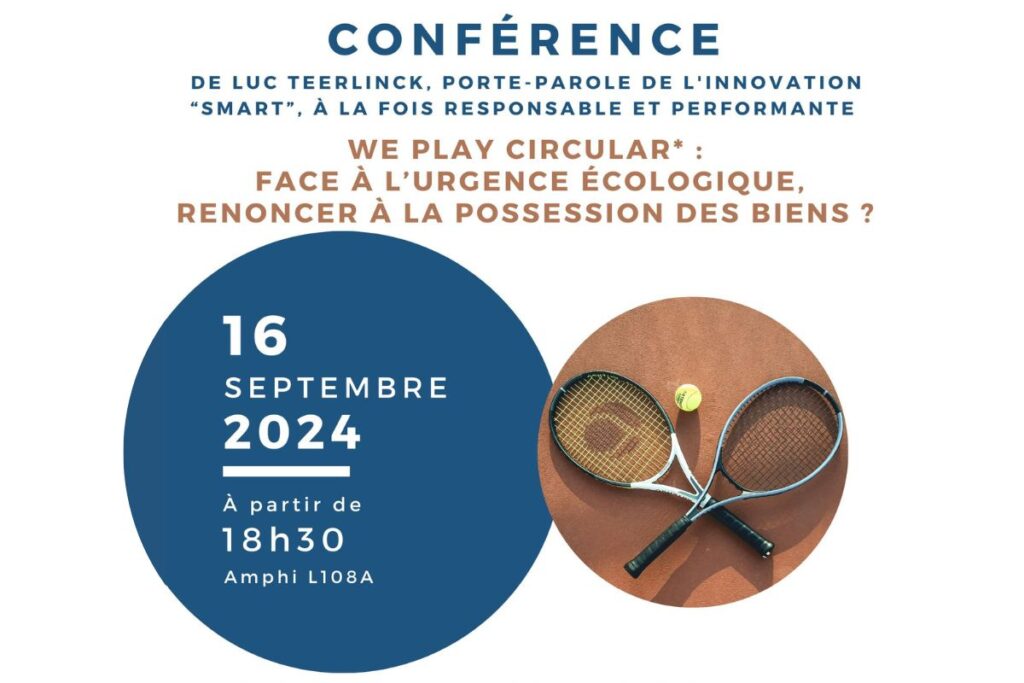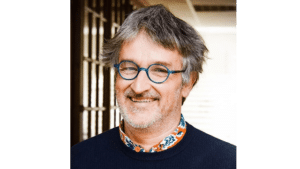Conference “We Play Circular: Faced with the ecological emergency, should we give up owning things?”, testimonial by Luc Teerlinck

ISIGE (Institut Supérieur d’Ingénierie et de Gestion de l’Environnement), its CSR-DD 17 class, and ISIGE Alumni are pleased to invite you to the conference “We Play Circular: Faced with the ecological emergency, should we give up owning things?”. It will take place on September 16, 2024, from 6:30 pm to 8:30 pm.
The “We Play Circular: faced with the ecological emergency, should we give up owning goods?” conference is part of the “Circular Economy and Sobriety” cycle that ISIGE and ISIGE Alumni have been running since 2022. We will have the privilege of listening to and discussing with Luc Teerlinck, former head of Decathlon’s We Play Circular offer.
The event will take place on September 16, 2024 from 6:30 to 8:30 pm at Mines Paris – PSL in room V107, 60 Boulevard Saint-Michel, Paris – 6ème.
Participation by videoconference possible for people living in the region.
Brief presentation
In the age of the Anthropocene, and in the face of several planetary limits being exceeded, we face a collective challenge: to move towards greater sobriety. Among possible solutions, the economy of functionality in general, and product rental services in particular, are being explored, notably by retail giant Decathlon. Luc Teerlinck, the man behind this crazy yet effective idea, will be on hand to talk about his experience on September 16.
His background
A serial entrepreneur, first in product sales and then in B2B services, Luc Teerlinck is sensitive to the societal challenges we face. He joined Decathlon in 2019 to take a role in the company’s innovation and diversification. He then gave birth to “We Play Circular”, a novel multi-product subscription formula offered to Decathlon Belgium customers.
A genuine breakthrough innovation in the mass retail sector, this ambitious Economy of Functionality project represents a major transformation for Decathlon. It can be replicated in other industries and has demonstrated, with figures to back it up, an enormous potential for performance that is not only financial, but also environmental and social, and the virtues of this type of model. Luc Teerlinck has since become a spokesman for “smart” innovation, which is both responsible and efficient.
What are the prerequisites for launching such an innovation? What are the key success factors? What are the results, and how quickly? How can the model be replicated? He’ll be on hand to talk and answer all our questions!

Registration here

